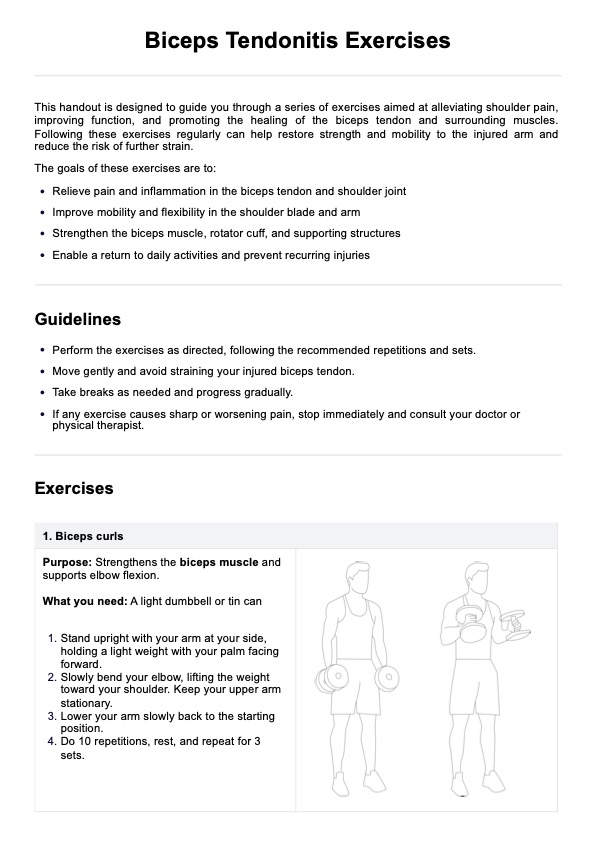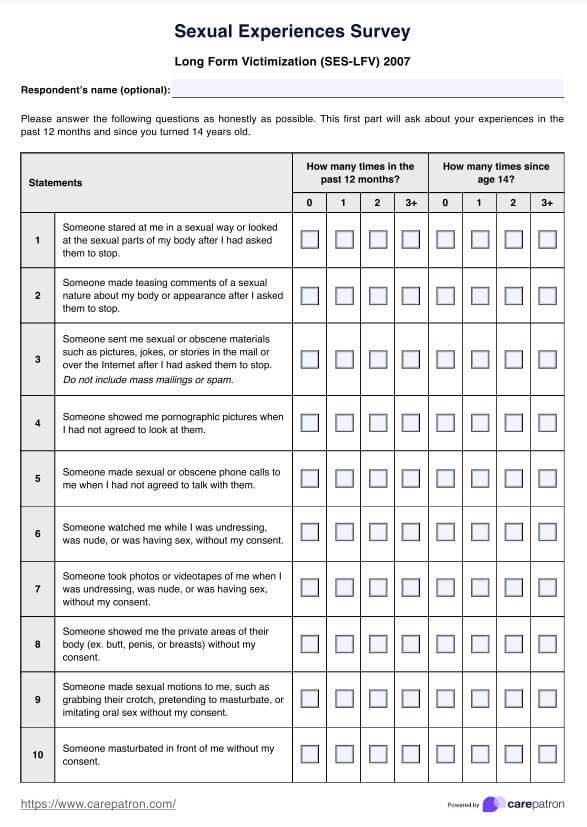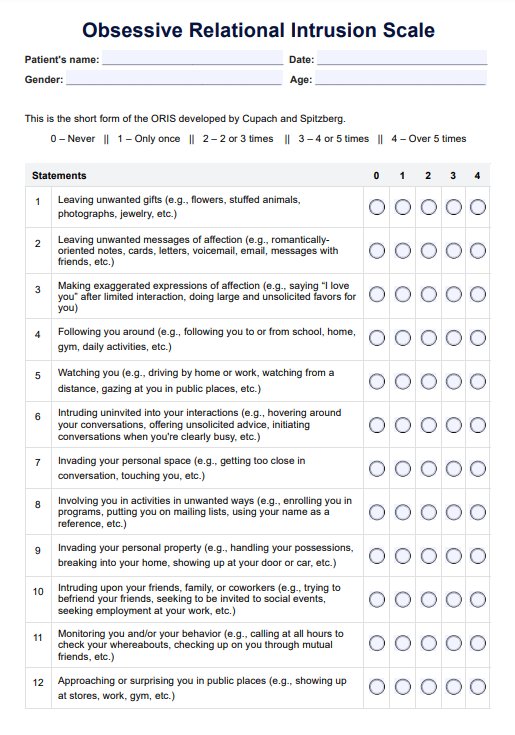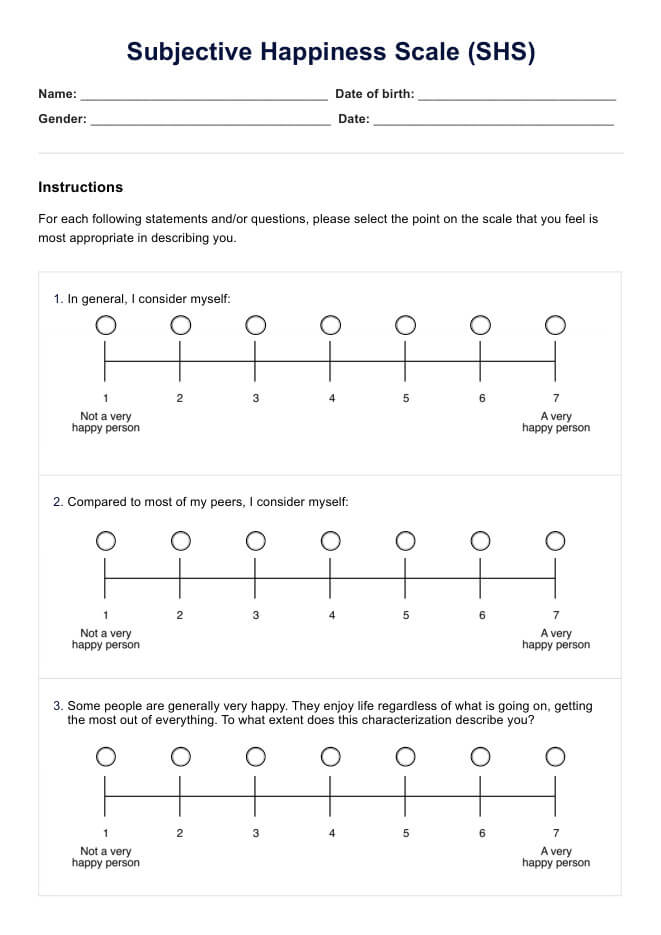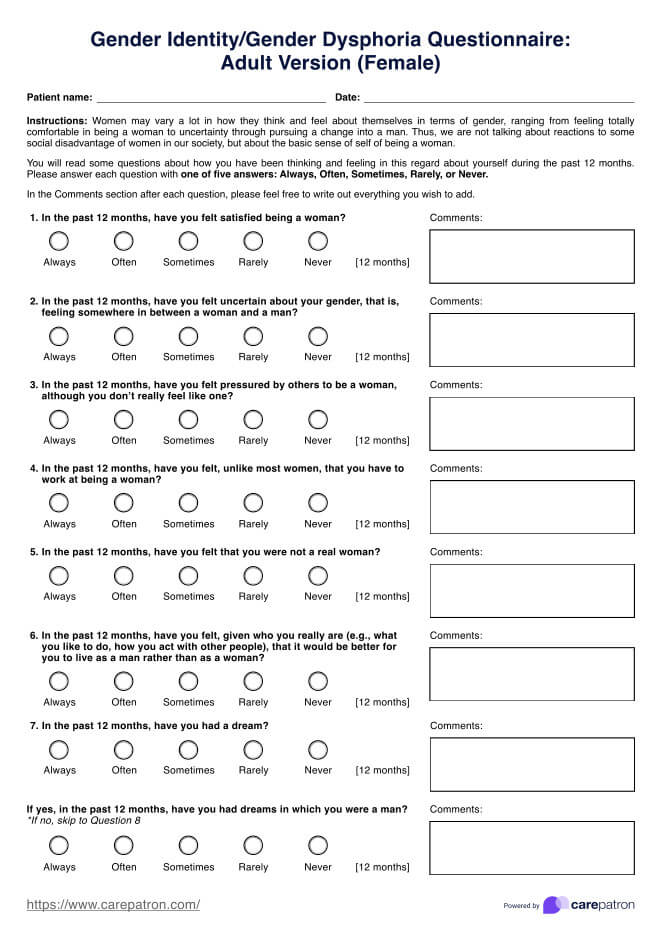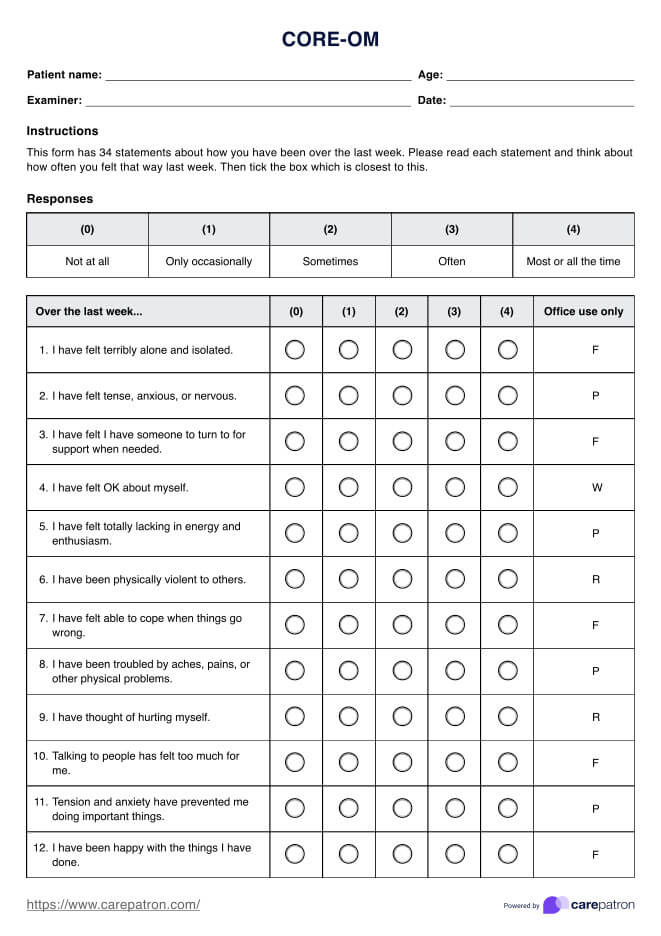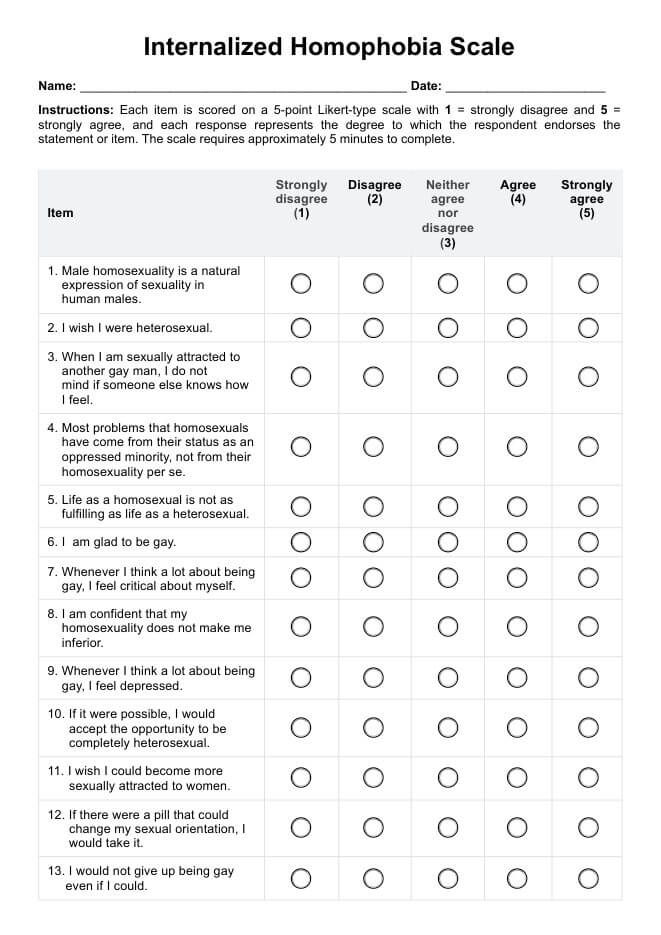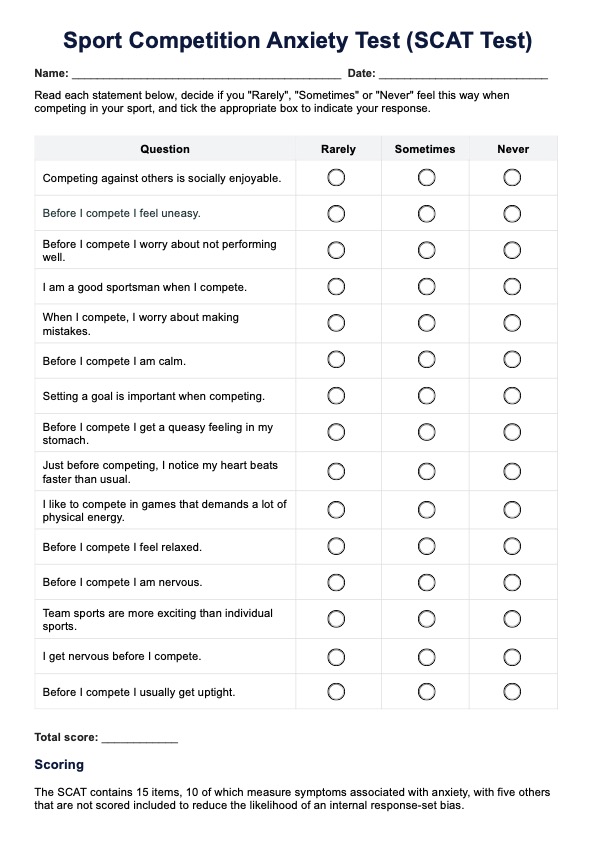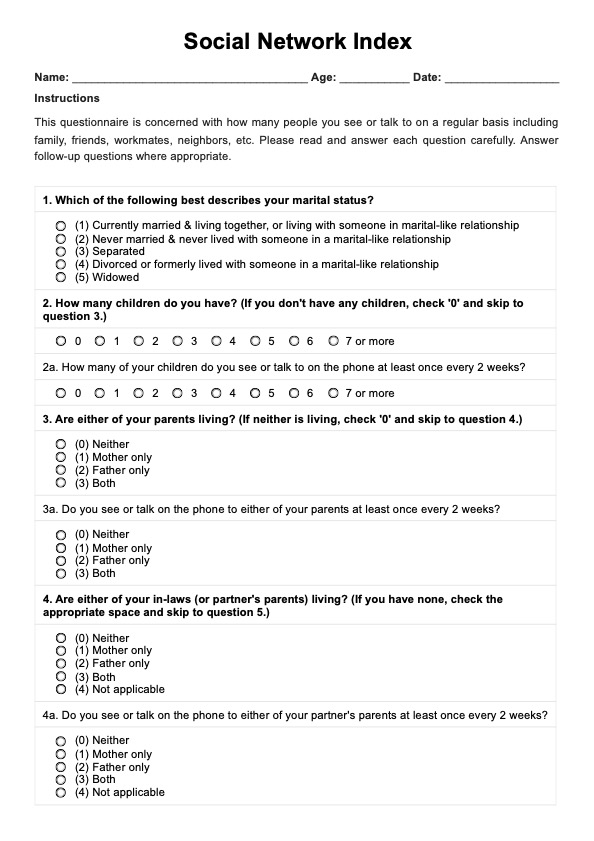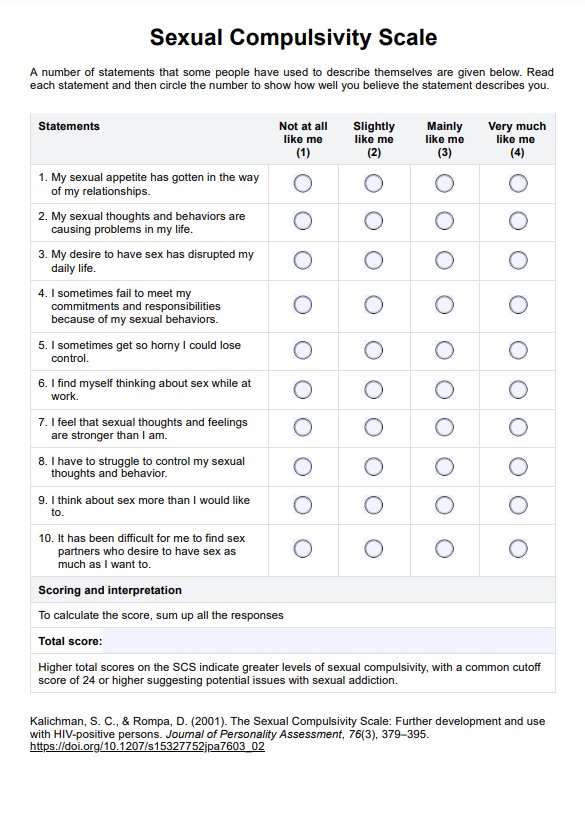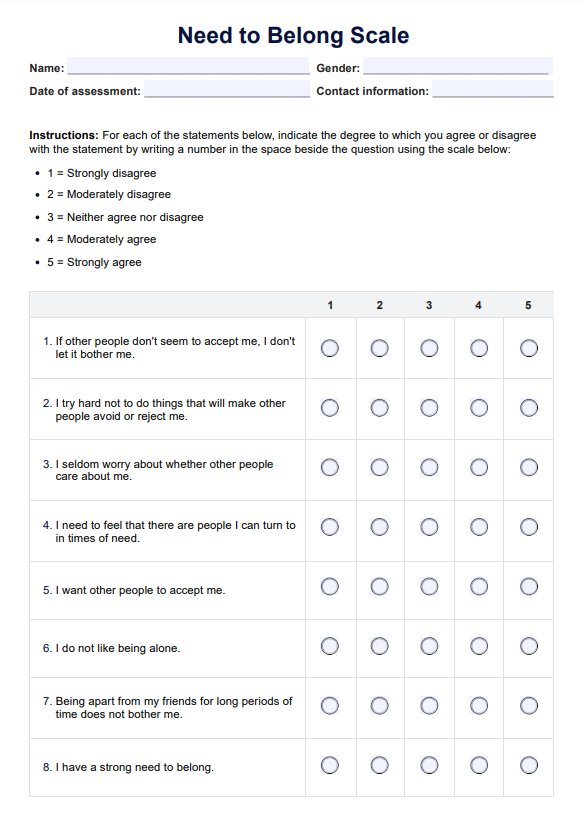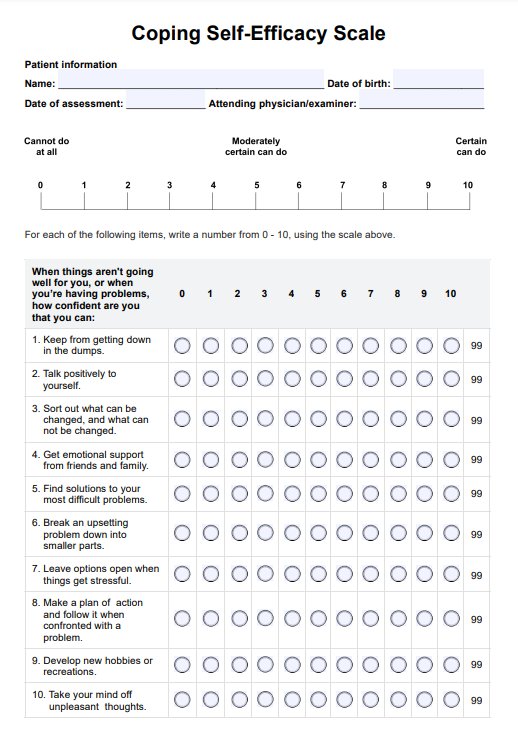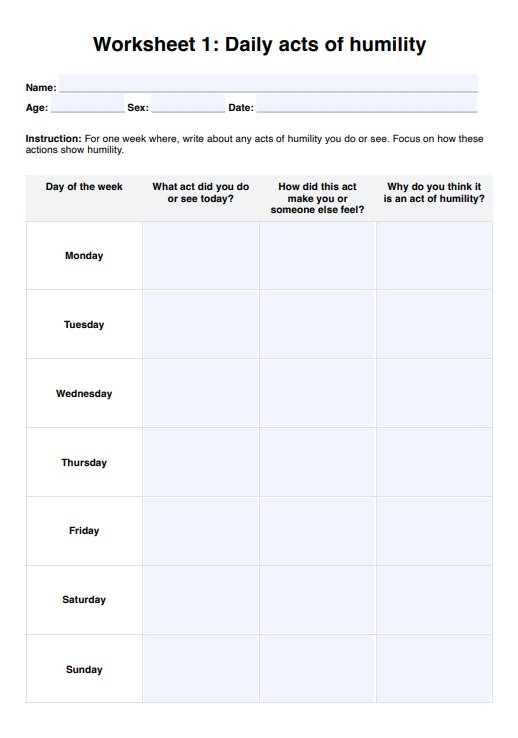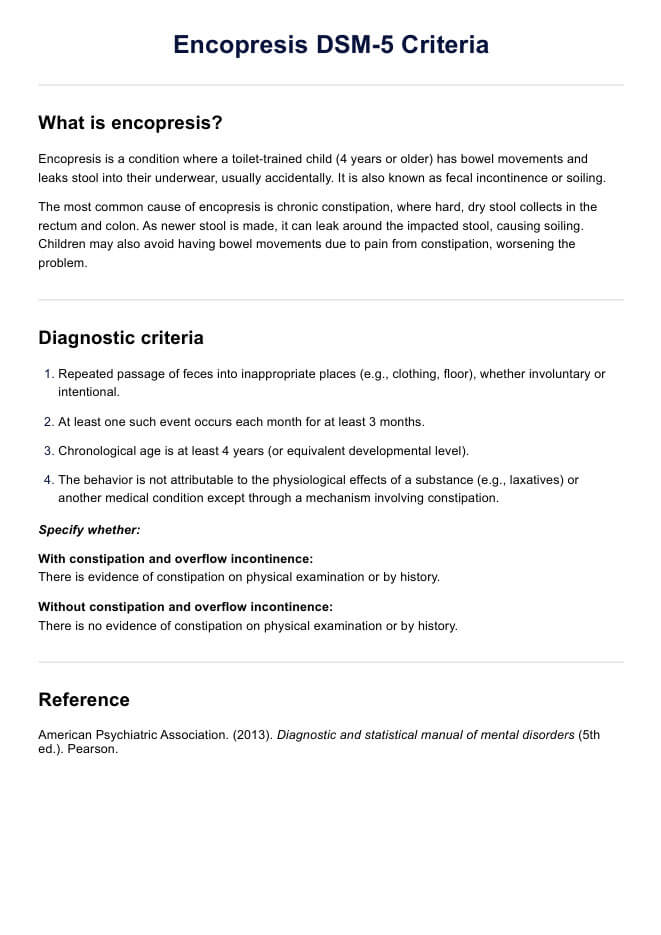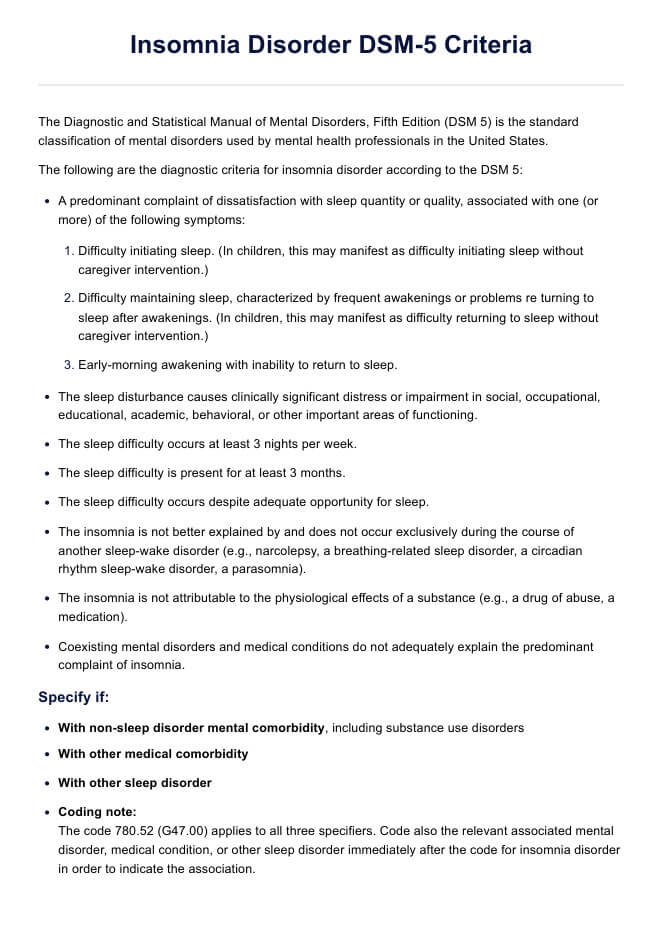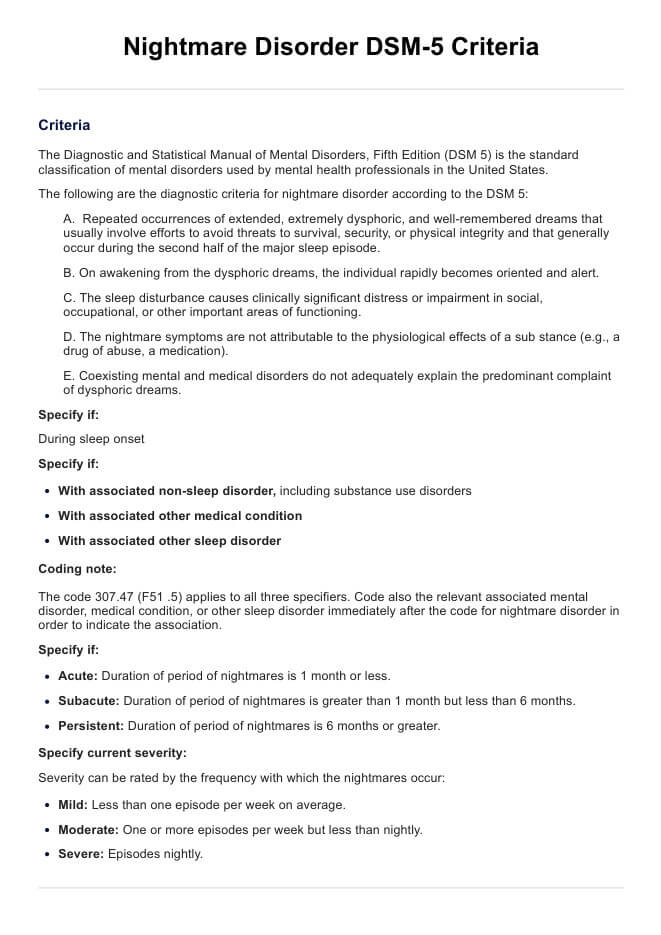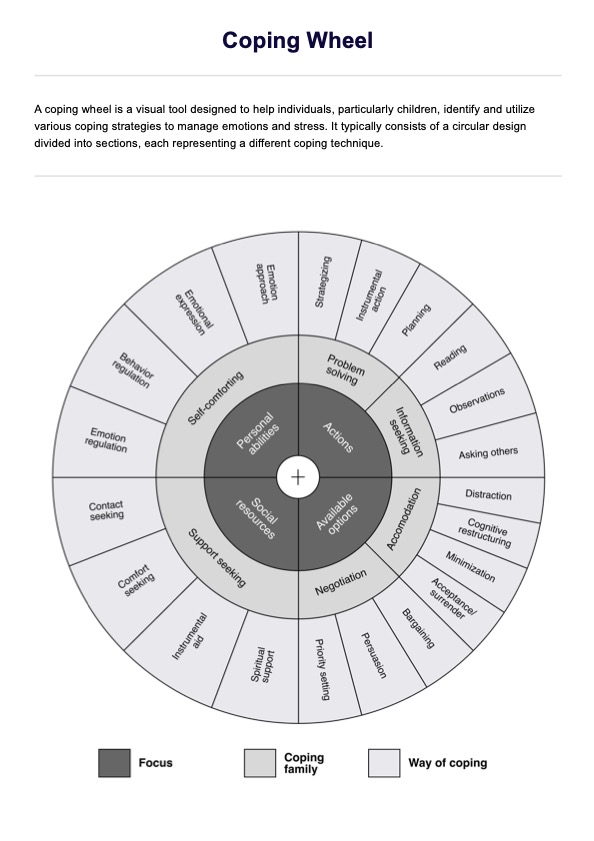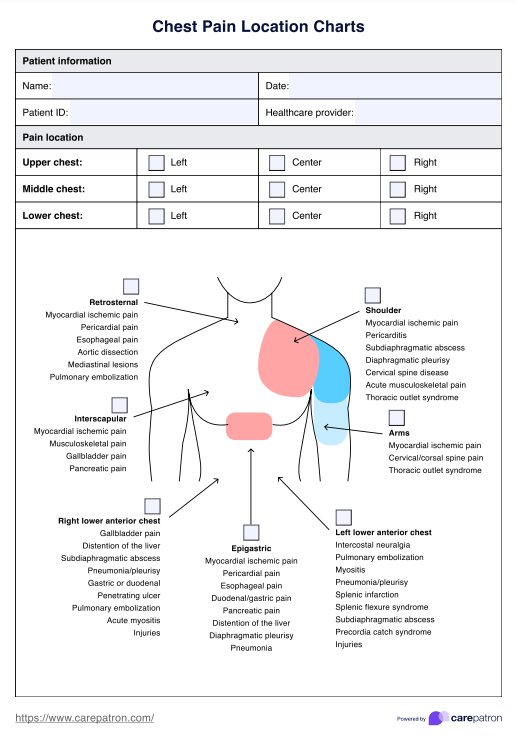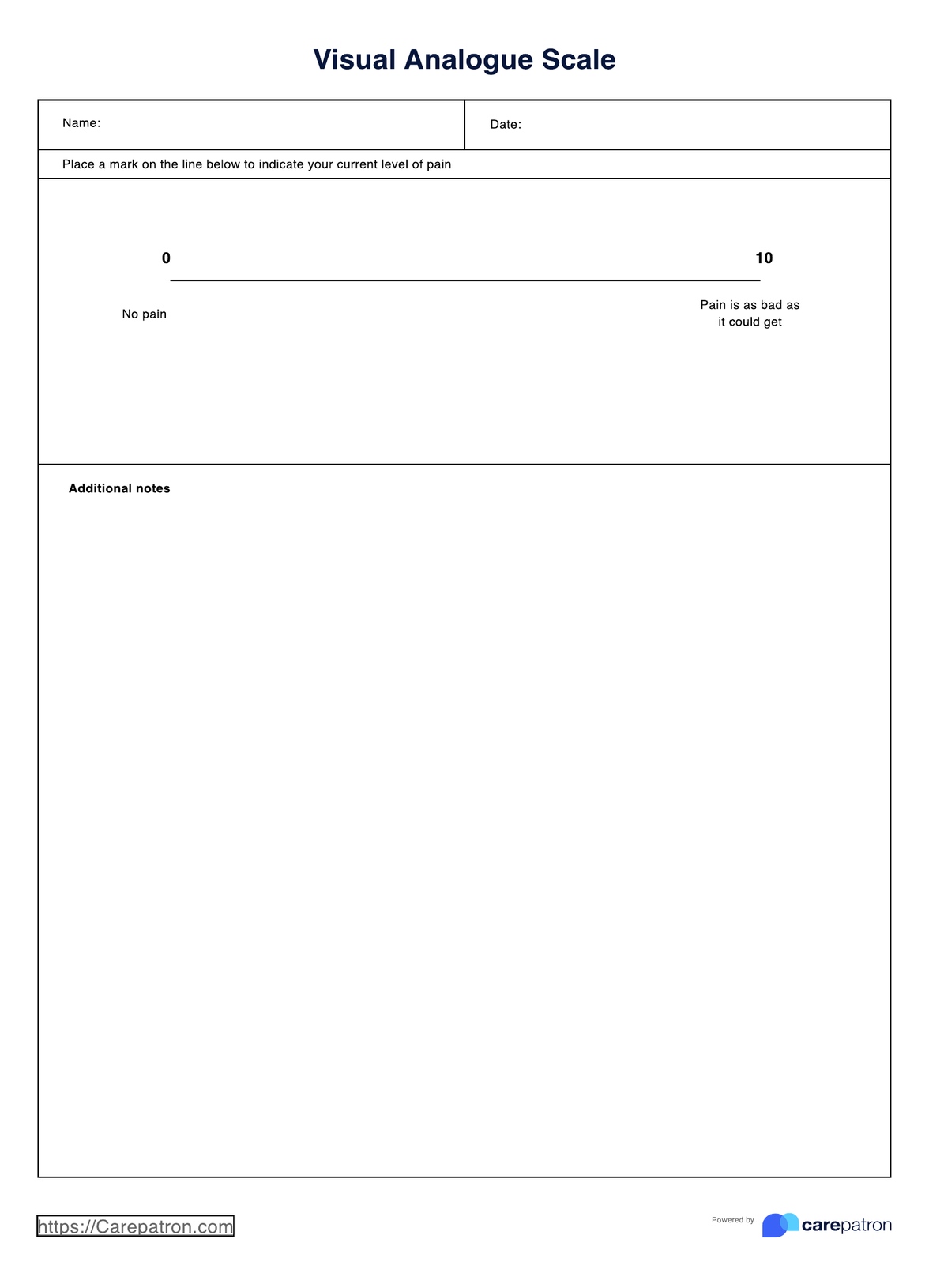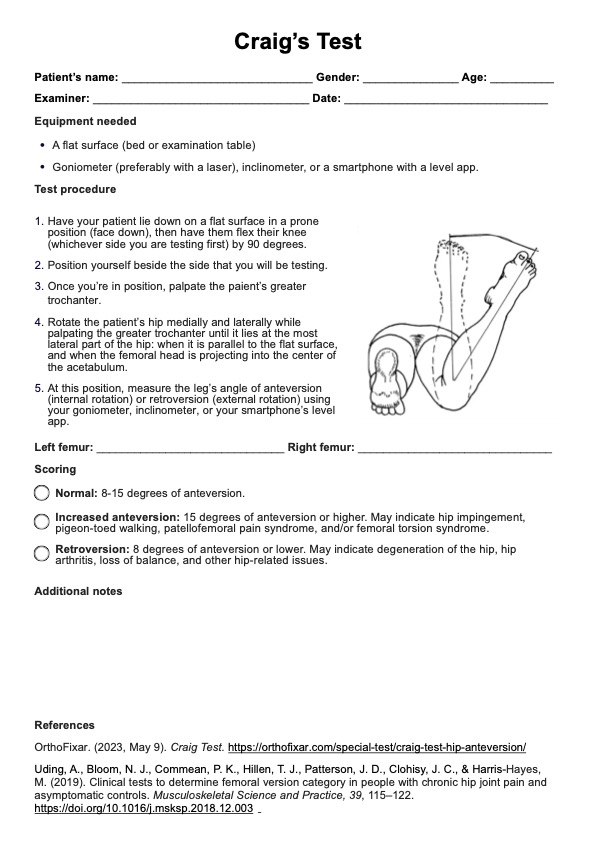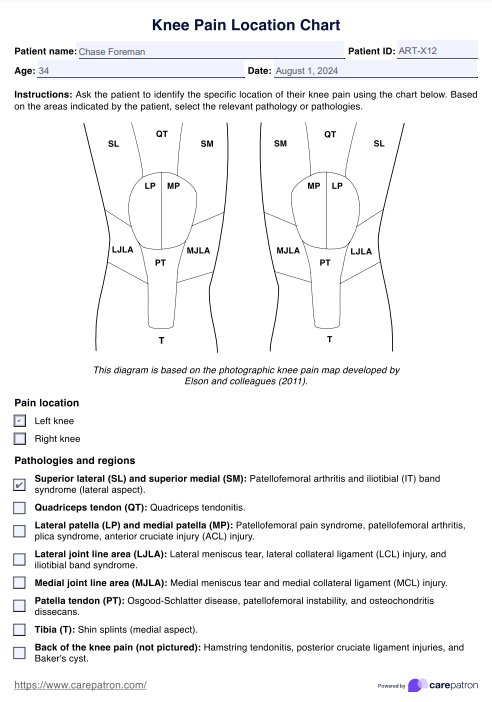Physical Therapy Exercise Flow Sheet PDF
Effectively document and plan sessions to enhance patient care with our Physical Therapy Exercise Flow Sheet PDF.


What is a Physical Therapy Exercise Flow Sheet?
A Physical Therapy Exercise Flow Sheet or a physical therapy flow sheet is a comprehensive tool that physical therapists utilize to organize, log, and track exercises prescribed to patients.
This document typically consists of a structured layout, often resembling a table or chart, with designated sections for exercise names, sets, repetitions, frequency, and any specific instructions or modifications. By recording the details of each exercise session, therapists can gain valuable insights into their patients' adherence, performance, and improvement trajectory.
A Physical Therapy Exercise Flow Sheet offers patients a tangible record of their prescribed exercises, facilitating adherence and accountability. Moreover, having access to a structured log enables patients to review and understand the specifics of their rehabilitation regimen, empowering them to take ownership of their recovery journey.
The streamlined communication between therapists and patients, ensures clarity and consistency, serving as a reference during patient reviews and progress assessments.
Physical Therapy Exercise Flow Sheet PDF Template
Physical Therapy Exercise Flow Sheet PDF Example
What is in a flow sheet?
A Physical Therapy Exercise Flow Sheet contains essential components designed to track patients' progress and document their rehabilitation journey efficiently. Let's delve into the key elements typically included in a flow sheet:
Exercise details
This section is intended for the specific exercises prescribed to the patient, including the name of the exercise, sets, repetitions, and any specific instructions or modifications provided by the physical therapist.
Frequency and duration
Here, the frequency and duration of each exercise session are recorded, detailing how often and for how long the exercises should be performed.
Patient information
The flow sheet typically includes basic patient data such as name, age, gender, and relevant medical history. This ensures accurate tracking and personalized care.
Progress notes
This section allows physical therapists to add comments or notes regarding the patient's progress, response to treatment, or any concerns observed during exercise sessions.
Therapist signature
At the bottom of the flow sheet, there is usually a space for the physical therapist to sign or initial, indicating their review and approval of the exercises prescribed.
Additional pages
Depending on the complexity of the treatment plan or the number of exercises prescribed, multiple pages may be added to accommodate comprehensive documentation.
How to use this Physical Therapy Flow Sheet template?
Using the Physical Therapy Exercise Flow Sheet PDF template is straightforward and intuitive. Follow these simple steps to utilize the template effectively:
Step 1: Download the template
Begin by downloading the Physical Therapy Exercise Flow Sheet PDF template via the Carepatron app. Ensure that you have access to PDF reader software to open and view the template, which you can also print.
Step 2: Input patient information
At the top of the flow sheet, fill in the necessary patient information, including the patient's name, age, gender, and any relevant medical history. Timestamp the flow sheet with the date and time of the exercise session. This allows for accurate monitoring of progress over time and ensures consistency in tracking.
Step 3: Document exercise details
Under the designated section for exercise details, enter the name of each prescribed exercise, along with the specified sets, repetitions, and any specific instructions or modifications provided by the physical therapist.
Step 4: Record frequency and duration
Indicate the frequency and duration of each exercise session, specifying how often the exercises should be performed and for how long during each session.
Step 5: Add progress notes
Include any comments or progress notes regarding the patient's response to treatment, observed improvements, or concerns noted during exercise sessions. This section allows for comprehensive documentation and facilitates communication between therapists and patients.
Step 6: Affix signature
At the bottom of the flow sheet, there is typically a space for the physical therapist to sign or initial, indicating their review and approval of the exercises prescribed.
Step 7: Provide feedback
After sessions or during consultations, encourage patients to provide feedback or comments regarding their experience with the exercises. This allows therapists to address any concerns, make necessary adjustments, and ensure a collaborative approach to care.
Benefits of using a Physical Therapy Exercise Flow Sheet
Utilizing a Physical Therapy Exercise Flow Sheet offers numerous advantages for both physical therapists and patients. Let's explore these benefits in detail:
Improved patient compliance and adherence
Physical Therapy Exercise Flow Sheets provide patients with a clear and structured plan for their rehabilitation regimen. By having a visual representation of their prescribed exercises, patients are more likely to adhere to their treatment plan, leading to improved compliance and better outcomes.
Enhanced monitoring of progress
With a flow sheet in place, physical therapists can systematically track patients' progress over time. By recording exercise details, frequency, duration, and progress notes, therapists gain valuable insights into patients' responses to treatment, allowing for timely adjustments and personalized care.
Facilitated communication between therapist and patient
The flow sheet serves as a central communication tool between physical therapists and patients. It enables therapists to convey exercise instructions, goals, and progress updates effectively, fostering a collaborative approach to rehabilitation. Patients can also provide feedback and report any concerns or challenges they encounter during their exercises, allowing therapists to address them promptly.
Optimized treatment planning
By consistently documenting exercises and progress, physical therapists can analyze trends and patterns in patients' rehabilitation journeys. This information enables therapists to tailor treatment plans more effectively, adjusting exercises, intensity, and frequency based on individual needs and progress.
Empowerment through education
Physical Therapy Exercise Flow Sheets serve as educational resources for patients, empowering them to take an active role in their recovery. By understanding the purpose and proper execution of each exercise, patients are better equipped to adhere to their treatment plans and make informed decisions about their health.
Comprehensive documentation for continuity of care
Flow sheets provide a comprehensive record of patients' exercise regimens, progress notes, and therapist feedback. This documentation ensures continuity of care across healthcare settings, allowing for seamless transitions between therapists and facilitating informed decision-making by healthcare providers.
Enhanced efficiency and organization
Having a standardized format for documenting exercises streamlines the documentation process for physical therapists. Flow sheets ensure that essential information is recorded accurately and consistently, reducing the risk of errors and promoting efficiency in patient care.
Commonly asked questions
A flow sheet in physical therapy is a structured document used to track and monitor patients' exercise regimens, progress, and treatment plans. It serves as a centralized tool for organizing and documenting rehabilitation efforts.
A flowsheet in physical therapy typically contains sections for patient information, exercise details (including sets, reps, frequency, and duration), progress notes, therapist signatures, and feedback/comments. It serves as a comprehensive record of the patient's rehabilitation journey.
To create a customized flow sheet on Carepatron, navigate to the templates section of the software, select the option to create a new flow sheet, and customize it according to your specific requirements by adding exercise details, patient information, and any other relevant fields.


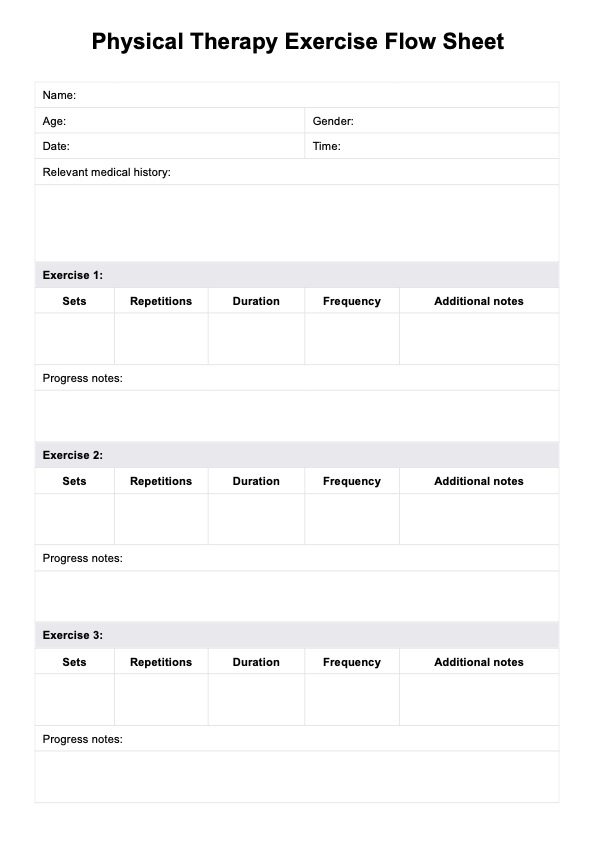
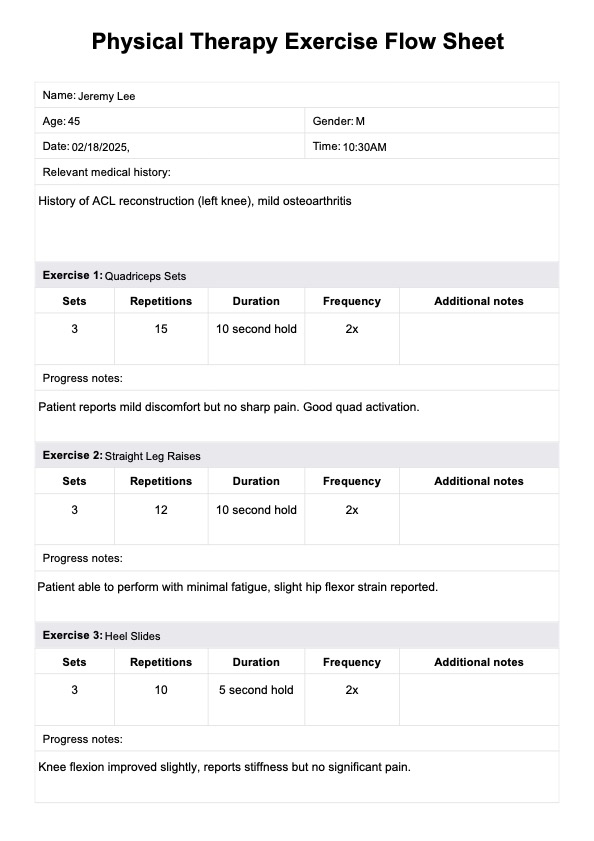










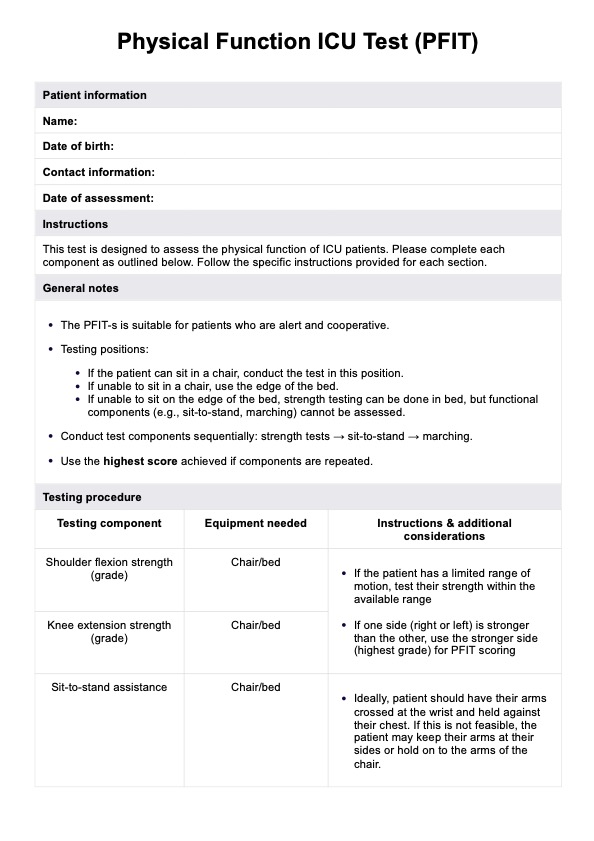




-template.jpg)






























